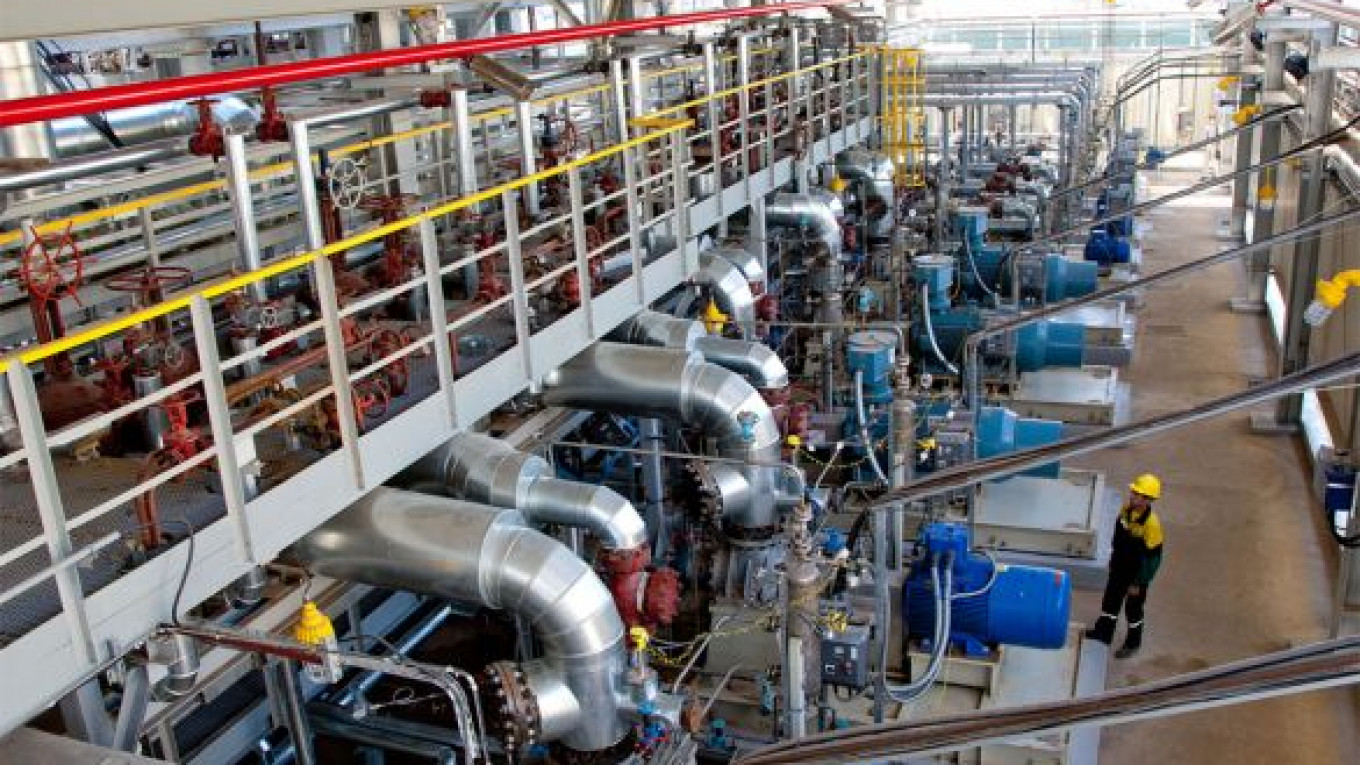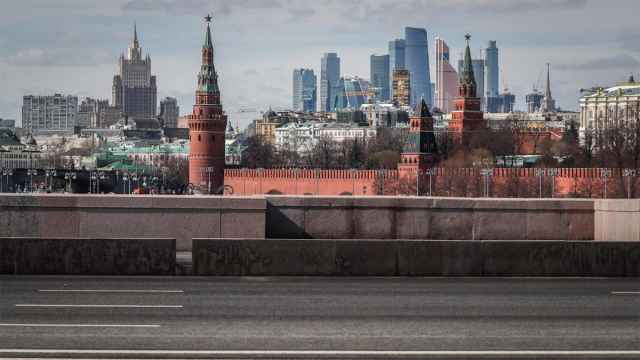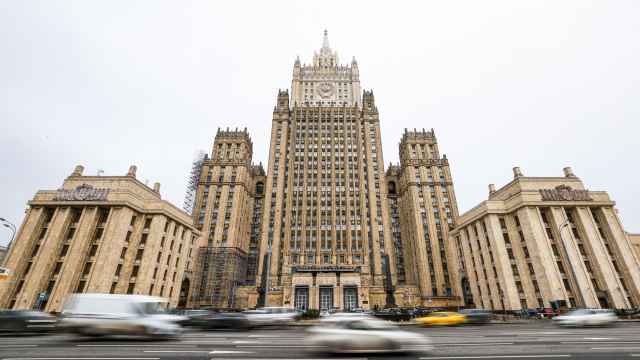Tax reforms due in October would benefit production and exploration heavyweights such as Rosneft and LUKoil and help the world's top oil producer maintain output at current peak levels for another few years.
The reforms, in the works for more than two years, encourage crude output and exports by lightening the burden of a tax system that captures more than 90 cents of every $1 increase in the price of exported crude.
They would give a new lease of life to the mature brownfields of western Siberia by cutting the marginal rate of crude export duty to 60 percent from 65 percent.
Some of that cost would be shifted onto the refining sector, making the export of heavy products such as fuel oil uneconomic and encouraging refiners to upgrade capacity to meet growing domestic demand for light products like gasoline.
Export duty on refined products will be unified at 66 percent of the rate applying to crude — with the exception of the gasoline export duty, which stays at an emergency rate of 90 percent imposed after a fuel supply crunch earlier this year.
"The biggest winners are definitely those companies with a higher share of exports and upstream production," said Pavel Sorokin, a senior energy analyst at Alfa Bank in Moscow.
Sorokin picked firms like Rosneft, LUKoil, Surgut and Tatneft as the main winners from the so-called "60-66" tax reform.
Analysts say the proposed tax changes have been only partly priced in to the relative valuations of Russian energy stocks given continuing uncertainty over implementation of the measure.
Officials agreed on the tax changes at talks chaired last week by Deputy Prime Minister Igor Sechin. Prime Minister Vladimir Putin's signature is now required for them to take effect.
But some analysts said that with Putin considering a run next March for the presidency, which he held in 2000-08, there was still a chance that the reform could be delayed again.
"I've lost faith in this scenario at least until the elections," said Ildar Davletshin, energy analyst at Renaissance Capital in Moscow.
"I don't think anyone in the government has clarity on how the industry would respond in terms of production, refining and exports," he said.
If the tax changes do come into force, crude exporters would get an uplift of $3 to $4 per barrel, while companies with simple refining operations would take the biggest hit as concessionary export duty on fuel oil is phased out.
Analysts at VTB Capital reckon that the industry as a whole would receive a boost of $5.8 billion to earnings before interest, taxation, depreciation and amortization next year, rising to $7.1 billion in 2013.
The tax break would help sustain Russia's current oil output levels of more than 10 million barrels per day for a few years, analysts say.
Output declines are possible after that unless the government develops a new tax system that takes proper account of the economics of developing new fields, rather than the current system based on counting barrels produced.
"It's a step in the right direction — it's far from perfect but at least temporarily it will give some incentives for the upstream guys in terms of production and the downstream guys in terms of complexity investments," said Artyom Konchin, an energy analyst at UniCredit Securities.
The windfall to companies from the 60-66 tax changes would, however, be largely clawed back under Finance Ministry plans to raise the mineral extraction tax on crude by 6.5 percent next year and 5.4 percent in 2013.
"The small net gain we see at the operating line ... is set to be taken right back in 2012, returning the government to near-neutrality on revenues, and upping the overall burden on the sector in 2013," Citi's Ronald Smith said.
The net effect would be to leave a bit more on the table on the upstream side, encouraging companies such as LUKoil to deploy enhanced recovery methods in their ageing portfolio of fields, analysts at UBS said in a note.
"While there is no ideal company, LUKoil should be the key winner from the 60-66 tax change, in our view, given its significant number of marginal brownfields and relatively complex domestic refining," the UBS energy team wrote.
Independent companies running simple refineries that have made easy money by exporting heavy mazut fuel oil to Europe, face severe pain and could be forced out of business.
Midsized Bashneft, owned by Sistema holding, will find its margins squeezed under the new regime as its refining volumes exceed crude production by 40 percent and the company needs to purchase additional barrels.
Tatneft's Taneco, the first large refinery to be built in Russia after the collapse of the Soviet Union, would also suffer under the tax changes. "We want to play by the old rules for Taneco," a Tatneft executive revealed on condition of anonymity.
A Message from The Moscow Times:
Dear readers,
We are facing unprecedented challenges. Russia's Prosecutor General's Office has designated The Moscow Times as an "undesirable" organization, criminalizing our work and putting our staff at risk of prosecution. This follows our earlier unjust labeling as a "foreign agent."
These actions are direct attempts to silence independent journalism in Russia. The authorities claim our work "discredits the decisions of the Russian leadership." We see things differently: we strive to provide accurate, unbiased reporting on Russia.
We, the journalists of The Moscow Times, refuse to be silenced. But to continue our work, we need your help.
Your support, no matter how small, makes a world of difference. If you can, please support us monthly starting from just $2. It's quick to set up, and every contribution makes a significant impact.
By supporting The Moscow Times, you're defending open, independent journalism in the face of repression. Thank you for standing with us.
Remind me later.






